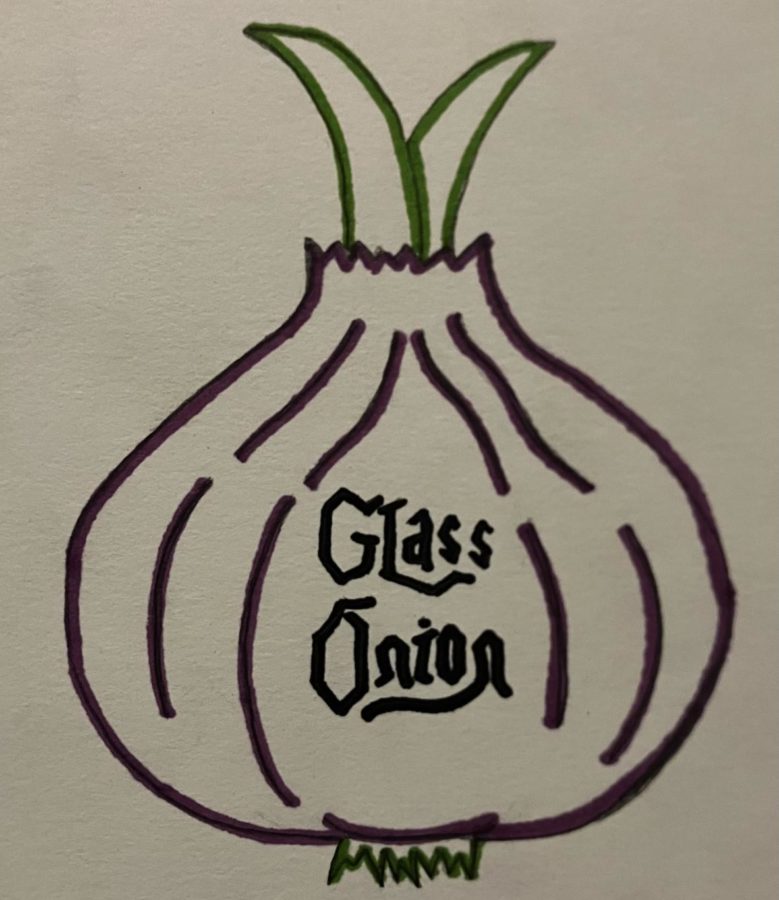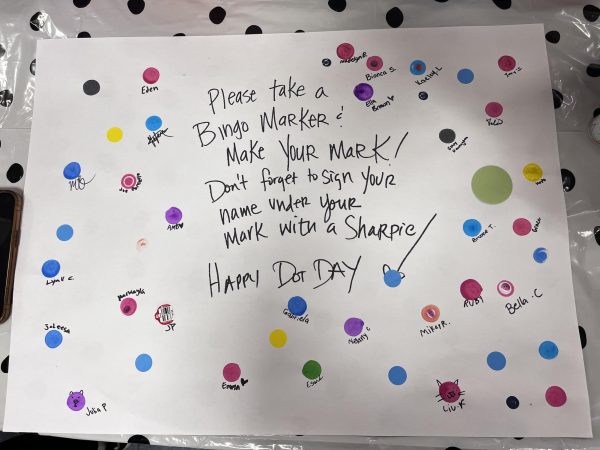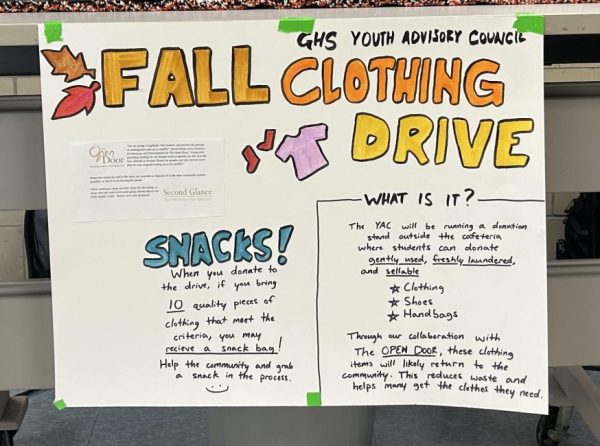Why “Glass Onion” and the “Knives Out” movies work
Artist Willow Barry depicts the logo and visuals of new “Knives Out” film, “Glass Onion.”
Amidst the countless bastardizations of the mystery genre that have blemished the big screen in past years, “Knives Out” (2019) provided a refresher as to what mystery movies should be: a mystery. The whodunit can only be done so many times without losing originality, and some films have begun to rely on cheap tricks for shock factor, or reuse old ideas, both of which detract from a satisfying and surprising ending that makes a murder mystery so enjoyable to watch.
Many avid Agatha Christie fans were dismayed at the 2022 adaptation of “Death on the Nile,” as it turned a beloved detective into no more than a caricature, and of course featured Gal Gadot, whose performance single-handedly managed to taint public opinion of what was one of Christie’s best novels. Rian Johnson, the writer and director of both “Knives Out” and “Glass Onion,” has cited Agatha Christie as one of his influences, but instead of simply remaking her ideas, he was inspired by her commitment to originality to make something new.
Other attempts at reinventing murder mystery films have also fallen flat. “See How They Run” (2022) was a meta murder mystery centered around a death on the West End set of “The Mousetrap,” a murder mystery play. The film did a brilliant job of not taking itself too seriously, in fact, it satirized its entire genre, but it failed to produce the intrigue that is so vital for a movie of its nature to thrive.
“Knives Out,” on the other hand, did pretty much everything right. The movie featured a brand-new detective who was eccentric enough to be entertaining, but enigmatic enough to be liked, as well as a cast of big-name actors, whose acting chops were not overshadowed by their fame. “Knives Out” also highlighted the talent of Ana de Armas, who played Marta Cabrera, the deceased’s nurse, who, for most of the movie, believes she is the murderer. The subversion of the audience’s expectations when the movie comes to a head was phenomenally pulled off and resulted in an incredible in-theater experience. Other than the twist, the most notable part of the film was the analysis of class roles and subtle racism that is ever-present in families like the one depicted. The film culminated with a shot of Marta on a balcony, clutching a mug reading “my house, my rules, my coffee,” overlooking the family of the deceased, who, despite their political differences, all united when they realized a working girl would be inheriting what they thought they deserved.
The commentary on class structures, as well as the incredible acting and cinematography, made for a film that cemented itself in the public conscience as one of, if not the best, new murder mysteries. So how could the sequel live up to the all-star cast and storytelling? For one thing, “Glass Onion” is not really a sequel, but rather a second installment. Though still star-studded, the cast is entirely different—save for Daniel Craig, who reprised his role as debonair detective Benoit Blanc. The mystery is entirely different too, and this time it is an honest-to-god whodunit.
Of course, with any Rian Johnson film, it is not as clear cut as that; no expenses were spared in terms of storyboarding for twists and red herrings. The mystery this time is framed in a more typical way than the one in “Knives Out,” as the culprit is left entirely unrevealed, until of course that fateful moment where the detective gathers all the suspects in a room and starts monologuing. Despite the more typical setup, the movie managed to pose brand-new puzzles. The film takes place on the private island of billionaire Miles Bron (Edward Norton), and depicts the chaos over the course of one night, involving power outages, poisonings, and criticisms of influencer culture.
Rian Johnson has spoken about the cultural phenomenon of “mistaking wealth for competence,” which manifested itself as Miles Bron, an amalgam of today’s tech billionaires, and their questionable ethics and pseudo-intelligence, an issue that has become oh-so relevant in recent months.
Movies that try and make points like these often get lost in them by forcing heavy-handed symbolism down the throats of viewers. However, “Glass Onion” does not let the social commentary interfere with the immersion of the audience in too obvious of a way, instead subtly weaving it through the story, which allows it to come off as less of a gimmick. The tendency of those in power to cover up for their peers in a bid to maintain their status is ever-present in society today, and is certainly pervasive in “Glass Onion.”
Through a sea of haphazard reboots, remakes, and adaptations, Rian Johnson and the rest of the “Knives Out” team have managed to strike gold. They have something original, something entertaining, and something that remained a secret, which is the key part of any good mystery. The film, which will premiere on Netflix on the 23rd after a short stint in theaters, is a brilliant construction of whodunit genius, one which gives murder mystery fanatics hope for the future of the genre in theaters.

Clara Del Vecchio is a senior at GHS, and editor-in-chief for the Gillnetter. In her free time, she enjoys baking, knitting, and reading, as well as occasionally...

Willow is a junior at GHS, and is a second year writer/illustrator for The Gillnetter. She swims for the school and a private team, she also enjoys participating...










![The Volleyball team poses after their win. [Photo courtesy of GHS Volleyball]](https://thegillnetter.com/wp-content/uploads/2025/10/IMG_6936.jpg)



![The GHS/MERHS senior cross country runners pose together on Senior Night. [Photo courtesy of Manchester-Essex Athletics]](https://thegillnetter.com/wp-content/uploads/2025/10/Screenshot-2025-10-10-at-11.18.29-AM.png)























![The Volleyball team poses after their win. [Photo courtesy of GHS Volleyball]](https://thegillnetter.com/wp-content/uploads/2025/10/IMG_6936-600x476.jpg)
